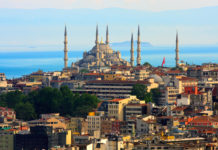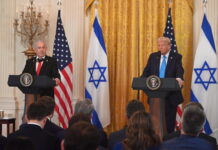Hanaa Yehia, the widow of British surgeon Dr Abbas Khan, who died in a Syrian government prison in December 2013, describes the characteristics of her husband which a recent BBC Radio 4 programme failed to shed light on.
This is Abbas.
The call to help those in need was a persistent one in Abbas’ heart. He never held back any goodness or kindness he could offer anyone.
Listening to the BBC Radio 4 drama ‘My Son the Doctor’, it saddened me that, as usual, Abbas was like an extra on the show, with no mention whatsoever to who he really was and what he held dearest to him; his deen – Islam.
I understand that this was a dramatised representation of Abbas and what he went through…but still…his legacy is one that we cannot simply reduce in this way. I want you to know those parts of him that were not simply about the man who was martyred, but how his character led him to that moment.
So far, no news article or an interview or any sort of media coverage actually reflected who Abbas really was.
Abbas was always, from a young age, religiously committed. Islam was the moving force behind his words and actions.
Subscribe to our newsletter and stay updated on the latest news and updates from around the Muslim world!
Opposite to what was made to seem true, Abbas never regretted going to Syria to help mend broken limbs and souls. Yes he hated the trouble he thought he landed everyone into, but he was never regretful, thus he never said “I should’ve never come here”. As claimed to have been the case on that drama programme.
Had he returned, I have no doubt he would not have been able to suppress the urge inside him to go back and help again and again.
This is Abbas! He always went out of his way to help others, always.
We were once driving from Carlisle to London around 3am it was extremely cold, we saw a car with hazard lights on – Abbas used to always check when he sees a car in that state if he could help at all. This time it was an English gentleman whose name was David. His car broke down and he was freezing, his phone was dead. Abbas offered to take him wherever he needed to go and David named a nearby Cumbrian village. He was able to call his mother and assure her he was safe.
At the entrance of the village, David told Abbas to drop him there and he would walk, but Abbas insisted he takes him to the door as the snow was a few inches high.
We dropped David to his friends and on our way out of the village we got stuck in the snow and the car wouldn’t move. Eventually, a kind farmer towed our car out with his tractor.
This is Abbas. In his heart and mind it didn’t matter what difficulties he would face as long as he answer the very unstoppable call in his heart to help, help always, and with no limits.
As much as he tried to be nameless, Allah willed his name to be known on earth and hopefully – by Allah’s generosity – in Paradise.
Abbas’ life, his dedication to his deen and enormous amount of sincerity he carried in his heart. The way he departed and the honour Allah willed to attach to his name for eternity was a reflection of Allah’s mercy on him and – I believe – an honourable reward for his humility.
Even when he was at a time of dire need, Abbas wrote requesting no money to be given to prison guards or officials and asked for it to be all given instead to widows and orphans. This is Abbas.
Abbas had the gentlest heart. Before heading to Aleppo, one of his colleagues, an orthopaedic surgeon, had an expensive bird, caged. When this colleague was out, Abbas opened the cage door and let the bird free, and later told his colleague he was happy to pay for the bird’s freedom. This is Abbas.
Abbas was a practising Muslim; was a man of prayer and supplication, a man of Qur’an, a man of charity, a man of morals.
How many mosques will bear witness for Abbas’ love! It never ceased to amaze me how he would always be blessed with catching salaah from the beginning! Every time! Even when we would drive around looking for a masjid, he would always catch the first rakaah. It’s amazing. I believe it’s Allah’s reward for his sincerity.
The Friday congregational prayer was extremely important to Abbas, to the extent that before considering whether to accept a job he would check if he can take the time for Jummah off.
If we were driving on the motorway, he would stop, no matter what, to pray. He would take the first possible exit to pray, even though he is travelling and he knows he can combine his salaah later.
He was over joyous to tell me he had completed the memorisation of Surah Al-kahf, a goal he worked towards for a long time and was blessed with completing just days before he was killed…whilst in prison. These verses were – interpretation of the meaning:
“However, [for the hospitality of] those who believed and did righteous deeds, there will be gardens of Paradise( 107) wherein they will abide for ever and they will never desire to go anywhere out of them (108).”
May these last verses he memorised be a reflection of his destination, insha’Allah.






















